Martindale Dental FAQ
Welcome to the Martindale Dental FAQ page, an online resource for answers to common questions and concerns about oral health and dental care. Our goal is to empower you with the knowledge you need to maintain a healthy smile, make informed decisions about your dental treatment, and easily navigate the world of dentistry. Here, you’ll find reliable information on a wide range of topics, from routine dental hygiene practices to complex dental procedures, all curated and reviewed by our team of experienced dental professionals. Dive into our frequently asked questions and uncover the secrets to a lifetime of optimal oral health.
Welcome to the Martindale Dental FAQ page, an online resource for answers to common questions and concerns about dental health, procedures, and our practice.
We understand that going to the dentist can be intimidating for some people and that there may be questions or concerns about visiting our office. We also feel that knowing what to expect when it comes to a procedure can alleviate some of that anxiety.
Our team of dental professionals is committed to providing high-quality care and ensuring that you feel comfortable throughout your visit. Keeping you informed every step of the way is an important aspect of that, so whether you’re a new patient or a returning one, we invite you to take a look at our FAQs for any questions you might have.
If you can’t find the information you’re looking for, please contact us with any further questions or comments. We’re happy to set up a consultation with one of our dental professionals for you.
Our dental offices are conveniently located throughout the GTA in Hamilton (Jackson Square), and St. Catharines, Ontario. We offer convenient appointments before or after work & on weekends.
Quick jump to topics
Quick jump to topics
Dental bridges FAQ
Our dental team has provided answers to some of the most commonly asked questions about this widely utilized restorative dentistry technique for tooth replacement. Dental bridges are a phenomenal (and non-invasive) procedure for tooth replacement and one we highly recommend. Please visit our dedicated service page for additional information about dental bridges, or contact our dental office. We’re always ready to help.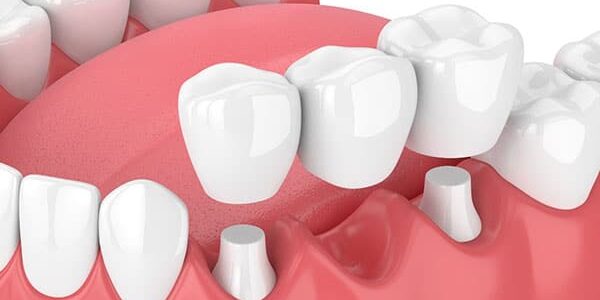
Dental bridges FAQ

Our dental team has provided answers to some of the most commonly asked questions about this widely utilized restorative dentistry technique for tooth replacement. Dental bridges are a phenomenal (and non-invasive) procedure for tooth replacement and one we highly recommend. Please visit our dedicated service page for additional information about dental bridges, or contact our dental office. We’re always ready to help.
When you are missing a single tooth, or multiple teeth, a Dental Bridge is a fixed (meaning cemented in and not removable) appliance that are designed to fill those gaps with realistic looking and feeling teeth. Bridges can be made from gold, metal alloys, porcelain, ceramics or a combination of these things.
Bridges are an excellent solution to replace missing teeth to restore your smile, improve your appearance and support the shape of your face. Dental bridges also prevent teeth from shifting to fill the gaps left by missing teeth and will help evenly distribute your bite, helping to reduce pressure on your gums and the underlying jawbone.. They can help with eating and speaking too while offering an effective non-surgical option to repair the damage done by missing teeth. Dental bridges are also a relatively quick treatment option and typically only require a few visits to the dentist.
Bridges are an excellent solution to replace missing teeth to restore your smile, improve your appearance and support the shape of your face. Dental bridges also prevent teeth from shifting to fill the gaps left by missing teeth and will help evenly distribute your bite, helping to reduce pressure on your gums and the underlying jawbone.. They can help with eating and speaking too while offering an effective non-surgical option to repair the damage done by missing teeth. Dental bridges are also a relatively quick treatment option and typically only require a few visits to the dentist.
The first visit involves a consultation with your dentist to determine whether a bridge is a good treatment choice for you. This process will involve taking X-rays to determine tooth and bone health. In addition, it is important that your gum health and overall health are in good condition to ensure an optimal outcome. After a treatment plan is made, the process of getting a bridge takes two visits. In the first visit, the teeth are recontoured and shaved, and a shade for the bridge is selected. An impression is taken and sent to the lab. A temporary bridge is made and cemented. At the second visit (usually two weeks later), the temporary bridge is removed and the permanent bridge is cemented in.
Bridges are a durable and reliable tooth replacement option that can last in excess of 10-15 years with routine dental visits and excellent home care.
Bridges do not require a lot of additional care over and above good brushing and flossing. The most difficult part of maintaining a bridge is to adapt floss underneath the ‘false’ tooth in order to keep that area clean. Your dentist and dental hygienist will assist you with this.
Dental crowns FAQ
Dental crowns are a popular and effective solution for various dental issues, from restoring damaged teeth to improving overall appearance. We aim to address the most common questions and concerns related to dental crowns, providing you with the knowledge to make informed decisions about your dental care. Please visit our dedicated service page for additional information about dental crowns, or contact our dental office. We’re always ready to help.
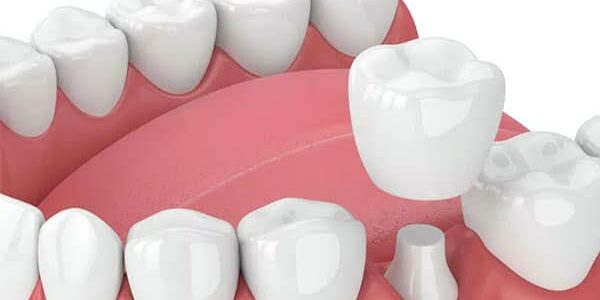
Dental crowns FAQ

Dental crowns are a popular and effective solution for various dental issues, from restoring damaged teeth to improving overall appearance. We aim to address the most common questions and concerns related to dental crowns, providing you with the knowledge to make informed decisions about your dental care. Please visit our dedicated service page for additional information about dental crowns, or contact our dental office. We’re always ready to help.
A dental crown, also known as a ‘cap’ is permanent and designed to fit over a tooth so that it appears to be a natural tooth. Different materials are used to create crowns including metals, ceramics and porcelains. Sometimes a combination of materials will be used for a dental crown. Ceramic crowns are very sturdy and pleasing to the eye.
There are a variety of reasons as to why a person might need a dental crown, each situation and patient different from the others. Just a few instances when a dental crown could be necessary include:
- If a tooth has been heavily restored it’s risk for breaking typically increases but a dental crown can actually lengthen the tooth’s life.
- If a tooth has undergone a root canal it becomes much more brittle which puts it at risk for cracking or fracturing. A dental crown can be placed on this tooth for maximum protection from a fracture or chance of breaking.
- If you have a tooth that doesn’t quite match the rest of your teeth, like a discoloured tooth, a dental crown can cover it up and help it blend in with your other teeth.
Two visits will be required in order to create your crown. Your tooth will be reshaped and recontoured in order for the crown to fit properly. We will take an impression of your tooth and place a temporary crown during the first visit. Your second visit is when we apply and fit your actual crown, adjusting your bite as necessary.
When researching dental crowns you may come across the term ‘post’ and this is placed in a tooth treated with a root canal and acts as a ‘frame’ for the crown. The post can be crafted from plastic or metal and supports the crown. Only teeth that have lost a good deal of structure require a post.
If you prefer to have something other than a crown you could possibly have a large filling placed. Unfortunately, there is a risk with using a filling. It can actually fracture which would result in another treatment.
It varies but the average dental crown ranges anywhere from $800 to $1000 with the kind of material playing a large role. We can work with you to set up a payment plan if necessary so that you can receive the crown you need.
There are different materials used to create dental crowns and new materials are introduced regularly but the most preferred options at Martindale Dental include:
- Porcelain
- All-Ceramic
- Glass
- Gold Alloy
We will use a local anaesthetic when preparing the tooth for a crown and you shouldn’t feel anything different than as if you were having a filling done. A local anaesthetic may not be required if you’re having a post crown and there is no nerve present in the tooth.
We will match your dental crown with your teeth as closely as possible to lessen the noticeability.
At first you might notice it feels different but after a few days it should become normal and less noticeable. If your bite doesn’t feel correct you might need an adjustment which we can help you with.
By taking proper care of your crown you can expect it to last a lot longer. While the crown won’t decay, decay can still form along the edge of the joining of the crown and your tooth. So it’s very important to continue with your normal oral hygiene routine and treat it like you would the rest of your teeth.
If proper care is taken you can expect your crown to last a long time. We can better determine this during a consultation appointment.
Dental implants FAQ
A modern and reliable solution for replacing missing teeth, dental implants have gained popularity as a durable and aesthetically pleasing alternative to traditional dentures and bridges. View our answers to the most frequently asked questions and concerns regarding dental implants. Please visit our dedicated service page for additional information about dental implants, or contact our dental office. We’re always ready to help.
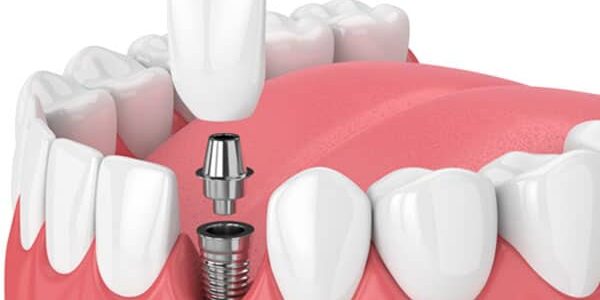
Dental implants FAQ

A modern and reliable solution for replacing missing teeth, dental implants have gained popularity as a durable and aesthetically pleasing alternative to traditional dentures and bridges. View our answers to the most frequently asked questions and concerns regarding dental implants. Please visit our dedicated service page for additional information about dental implants, or contact our dental office. We’re always ready to help.
Having Dental Implants placed is not usually very painful after the surgery is complete. In fact, it is one of the least painful procedures available in dentistry today. Although this may be counterintuitive, feedback from our patients tells us that they were pleasantly surprised at how little pain there was afterwards! Since there are no open wounds with implant surgery, pain can typically be managed with drugs such as advil.
Depending on the number and location of the implant, the procedure usually takes an hour if there are no complications.
Sticking to a soft diet with enough liquids to keep you hydrated is the best plan after having the implant placed. It is best to avoid harder foods that require more effort to chew. Our specialists will follow up with you routinely to ensure adequate healing is taking place.
After an implant is placed, it typically takes 2-3 months to fully integrate into the bone. In some instances, the implant can be loaded with a crown immediately following surgery, but this is done on a case by case basis. Once integration is complete, the crown can be placed. When you have a consultation with one of our specialists, they will determine the best course of action and inform you of the timelines involved.
Once a Dental Implant is fully integrated with the bone, it can last for many years with good home care and regular dental visits. Implants that were placed over 40 years ago are still working optimally today.
In some rare cases, patients with titanium allergies (titanium is the primary component of a dental implant) can reject implants. Additionally, an infection of the bone can prevent integration. However, all that is required is some time to heal and the specialist can place another implant for you.
This is a very common question. Many people suffer with poor or loose teeth which can impact self confidence and the ability to properly chew and enjoy food. Dental implants are made from expensive materials and have custom made components which drives the price up. However, implant cost is coming down all the time, and as technology improves we will see this price come down further. It is also important to understand that having a dental implant placed is an investment in yourself. And since they last such a long time, the benefits of implant longevity far outweigh the initial cost.
Most insurance companies like to cover the cheapest option, and as a result they tend not to cover dental implants. This is changing however, and more and more insurance companies are realizing the long-term benefits of implants and are now starting to cover them. We have convenient and affordable payment plans to help you finance your dental implant.
Dental veneers FAQ
Dental veneers are an increasingly popular option for those seeking to enhance their smiles and boost their self-confidence. Veneers offer a minimally invasive solution to correct various cosmetic imperfections, such as discolored, chipped, or misaligned teeth. View our answers to the most frequently asked questions and concerns regarding dental implants. Please visit our dedicated service page for additional information about dental veneers, or contact our dental office. We’re always ready to help.
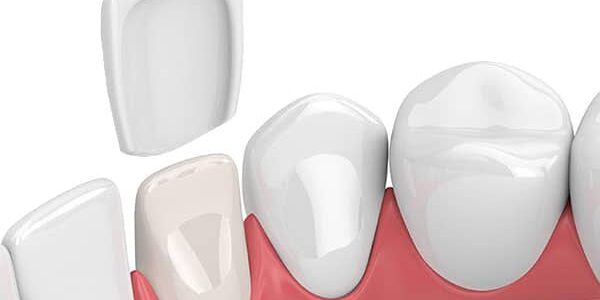
Dental veneers FAQ

Dental veneers are an increasingly popular option for those seeking to enhance their smiles and boost their self-confidence. Veneers offer a minimally invasive solution to correct various cosmetic imperfections, such as discolored, chipped, or misaligned teeth. View our answers to the most frequently asked questions and concerns regarding dental implants. Please visit our dedicated service page for additional information about dental veneers, or contact our dental office. We’re always ready to help.
Veneers are thin shells made of tooth coloured materials (either from porcelain or tooth-coloured plastic filling materials) that are custom made and bonded to your teeth to improve their appearance (changing the colour, shape, size or length). Porcelain veneers are usually made in the lab and are more resistant to staining compared to veneers made of tooth coloured filling material.
Dental veneers are a great solution for people with discoloured, worn down, chipped, misaligned, uneven or irregularly shaped teeth. Veneers are a good solution to close a gap that may exist between your front teeth.
Getting a porcelain veneer is usually a 3 step process. The first step is to get a consultation with the dentist. At this visit, you can outline your concerns with the dentist, and he or she will explain how veneers will work for you. The dentist may prescribe X-rays or take moulds of your teeth. The second step is to prepare the tooth for the veneer. A small amount of tooth structure is removed and an impression is taken. The dentist will then place temporary veneers. At the third appointment, temporaries are removed, and the final veneer is bonded to your tooth. In the case of veneers made from tooth coloured filling material, this is a one appointment process in which the dentist will remove a small amount of tooth structure and bond filling material to your teeth. This type of veneer is not as long lasting and doesn’t resist stain as well as a porcelain veneer.
The preparation of veneers preserve the most amount of tooth structure as very little needs to be removed. They can vastly improve the appearance of your teeth, and gum tissues respond well to dental veneers. The colour can be custom selected and in the case of porcelain veneers they are extremely stain resistant.
Once you have had your tooth prepared for the veneer, the process is not reversible. In the case that a veneer cracks, it is difficult to repair without having to replace the entire veneer. With people who have poor gum health, veneers are not a good option. It is important not to have habits like pen-chewing or nail-biting as these can crack the veneer. In addition, people who grind or clench their teeth are at risk for chipping or cracking their veneers. Lastly, veneers are still susceptible to decay so it is important that you maintain optimal oral health and visit your dentist regularly.
Typically, a veneer lasts approximately 5-10 years. They do not require any special care other than regular brushing, flossing and visits to the dentis
Typically, a porcelain veneer costs between $800-1000 per tooth but consult with your dentist to get an accurate cost.
Dentures FAQ
Dentures have been a trusted choice for many patients, offering a comfortable and affordable alternative to other tooth replacement methods. We understand the importance of being well-informed about your dental care options to achieve optimal oral health and enhance your overall quality of life. Please visit our dedicated service page for additional information about dentures, or contact our dental office. We’re always ready to help.
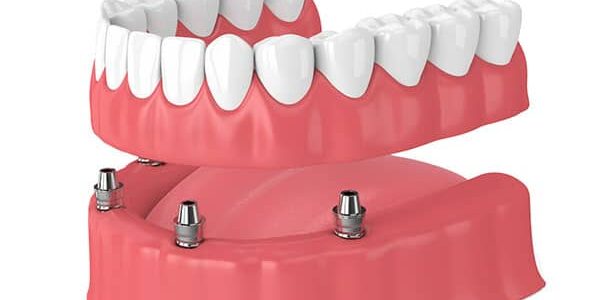
Dentures FAQ

Dentures have been a trusted choice for many patients, offering a comfortable and affordable alternative to other tooth replacement methods. We understand the importance of being well-informed about your dental care options to achieve optimal oral health and enhance your overall quality of life. Please visit our dedicated service page for additional information about dentures, or contact our dental office. We’re always ready to help.
When you lose teeth, the bone starts to shrink or resorb away. As such, the intimate fit of a denture will change over time and may lead to soreness. This leads to more bone loss and difficulty with chewing. If you feel this is happening to you please come in to our office to have your dentures looked at.
Dentures typically last about 7 years, and should be replaced to avoid problems with fit.
An implant retained denture is one that is stabilized by the use of dental implants that have been placed in the jaw. Implants are especially useful in the lower jaw as lower dentures tend not to fit as well as upper ones. Implants can transform a denture into an appliance that you can feel confident wearing out in public without fear of them dislodging.
Upper dentures fit well because the shape of your palate allows for a suction seal. On the lower arch, this doesn’t exist and there are several muscles in your cheek which along with the tongue work hard to dislodge the denture. It is important to consider implants to confidently keep a lower denture in place.
Immediate dentures are placed right after diseased teeth are removed. This way, you never go without having teeth. However, in the first few weeks following extraction of teeth and placement of the immediate denture, your soft tissues (gums) and bone will change shape. It is therefore a requirement to have your denture relined between 6-8 weeks after the initial placement of the denture. This adds some cost to the procedure, but is well worth it for people that cannot go without having any teeth.
Partial dentures are appliances designed for individuals who are missing some, but not all teeth. They use existing teeth for stabilization (using clasps and other design features). The most comfortable partial dentures have a thin cast metal framework which are easier to wear compared to bulky plastic partial dentures. Partial dentures can be made for both the upper and lower arches.
It takes a few days, and up to a few weeks to adjust to your dentures. You may notice that your speech is different, but with time this goes away. People that have been wearing dentures for many years adjust very quickly. However, if you have had a lifetime of using your own teeth and are then presented with having to wear dentures, the psychological impact can mean it takes longer to adjust. It is best to manage expectations when considering dentures as a treatment option.
A properly fitting denture will improve your appearance by giving you the facial support needed to look your best. In addition, the teeth are optimized to make you look your best and improve self confidence. When you notice that your face is ‘sagging’ or you notice more wrinkles, it may be time to replace your dentures.
When you receive a new denture, there is always a period of adjustment. During this time, you may notice some changes in your speech. Rest assured, that within a week or so this should disappear as your muscles adapt to your new appliance. Some dentures may produce a clicking or whistling sound which is a sign that your dentist should adjust or repair them.
Removing dentures at night allows your gums and tissues to ‘breathe’. If you continuously wear your denture, you are at risk for infection (usually fungal).
While sore spots are common when you first start wearing a new denture, it is not something that should be left untreated. Soreness indicates that your denture is not fitting like it should and is rubbing the tissues causing the soreness. See your dentist for an adjustment to fix the problem.
It is important to continue seeing the dentist regularly to ensure your dentures fit well. At your check up appointment, the dentist will help remedy any problems with your denture, assess the soft and hard tissues in your mouth and check for cancer.
Endodontics FAQ
Endodontics, a specialized branch of dentistry that focuses on preserving and maintaining the health of your teeth’s inner structures. Endodontic treatments, including the well-known root canal therapy, play a vital role in addressing dental issues that affect the dental pulp and surrounding tissues. Please visit or contact our dental office for more information. We’re always ready to help.
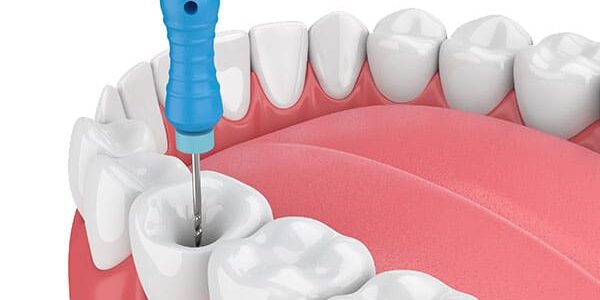
Endodontics FAQ

Endodontics, a specialized branch of dentistry that focuses on preserving and maintaining the health of your teeth’s inner structures. Endodontic treatments, including the well-known root canal therapy, play a vital role in addressing dental issues that affect the dental pulp and surrounding tissues. Please visit or contact our dental office for more information. We’re always ready to help.
Do you have any of the following symptoms?
- Sensitivity to hot or cold that lingers
- Discomfort when chewing or biting
- Dull ache or severe pain
- Discomfort that wakes you up at night
- Your dentist has diagnosed the need for endodontic treatment either by clinical exam or x-ray
If you answered yes to any of the above, you might very well need a root canal. Please call and schedule for an evaluation.
Be aware not all teeth that are in need of root canal therapy will cause pain. It is possible to be pain-free and still need a root canal.
We will examine the x-ray and the tooth, then administer a local anesthetic. After the tooth is numbed, a small protective sheet, called a dental rubber dam is placed to isolate the tooth. An opening will be made in the crown of the tooth and small instruments will be used to clean the canals and to shape the canal spaces for filling. Once the canals have been adequately cleaned and shaped, the canals will then be filled with a polyester synthetic root canal filling and sealer. A temporary filling is then placed to close the opening. Your dentist will remove the temporary filling before the tooth is restored.
With modern techniques and varied local anesthetic solutions it is rare to have any sensation in the tooth during treatment. For the first few days after treatment, It is normal for your tooth to be sensitive to biting. This discomfort can be relieved with over-the-counter or prescription medications in order to control normal post-treatment discomfort.
In most cases the discomfort will subside dramatically within the first 24-48 hours. Any sensitivity to cold, hot or even breathing air “in” will be gone after your visit. Nevertheless, you may experience mild discomfort to pressure that could last for several days after treatment. Taking over-the-counter anti-inflammatory analgesics such as ibuprofen (aka Advil, Motrin), naproxen (aka Aleve) or aspirin (aka Excedrin) usually relieves this discomfort. Tylenol has been proven not to be as effective as ibuprofen and related medicines , because it does not have the anti-inflammatory component.
The most common predictor of post-treatment pain is pre-treatment pain. If the tooth is already hurting the root canal procedure will remove the cause and allow healing to begin. During the first 72 – 96 h we will prescribe an analgesic regimen that should allow you to begin healing pain-free.
The most common complaint is tenderness to touch, bite, tapping or chewing on the tooth. It is always best to chew on the other side until a permanent restoration replaces the temporary restoration.
The single most important benefit of root canal therapy is that you keep your tooth. Extraction may lead to other dental problems. For instance, drifting of teeth, bite problems, TMJ discomfort, and the need to treat adjacent teeth that do not otherwise need dental treatment in order to restore the missing tooth. No matter how effective modern tooth replacements are – and they can be very effective – nothing is a good as your natural tooth.
Root canal treatment (also called endodontics) is needed when the blood or nerve supply of the tooth (known as the pulp) is infected through decay or injury. You may not feel any pain in the early stages of the infection. In some cases, your tooth could darken in colour, which may mean that the nerve of the tooth has died (or is dying). This would need root canal treatment.
If the pulp becomes infected, the infection may spread through the root canal system of the tooth. This may eventually lead to an abscess (gumboil). An abscess is an inflamed area in which pus collects and can cause swelling of the tissues around the tooth. The symptoms of an abscess can range from a dull ache to severe pain and the tooth may be tender when you bite. If root canal treatment is not carried out, the infection will spread and the tooth may need to be taken out.
Yes. However, as a dead tooth is more brittle, it may be necessary to restore the tooth with a crown to provide extra support and strength to the tooth.
In the past, a root-filled tooth would often darken after treatment. However, with modern techniques this does not usually happen. If there is any discolouration, there are several treatments available to restore the natural appearance.
The purpose of the treatment is to remove the bacteria or dying nerves from inside the tooth and to disinfect the root canals. This is achieved by making a small hole through the tooth into the pulp chamber, locating and measuring the root canals, then cleaning and widening them using fine instruments called files.
Once clean, the canals are filled to seal them off from re-infection. In most cases abscesses will start to heal at this point . Changes on the x-ray are not usually seen however for up to six to eight months following treatment.
General dentistry FAQ
General dentistry is the foundation of oral health care and encompasses a wide array of dental services and procedures. This includes everything from routine checkups and cleanings to fillings and extractions, ensuring that your teeth and gums remain in optimal condition. Please visit or contact our dental office for more information about our general dentistry services. We’re always ready to help.
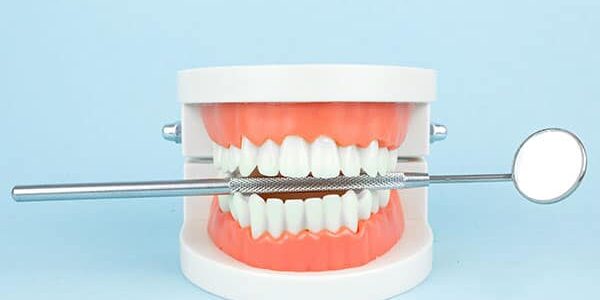
General dentistry FAQ

General dentistry is the foundation of oral health care and encompasses a wide array of dental services and procedures. This includes everything from routine checkups and cleanings to fillings and extractions, ensuring that your teeth and gums remain in optimal condition. Please visit or contact our dental office for more information about our general dentistry services. We’re always ready to help.
Regular dental visits are important because they can help spot oral health problems early on when treatment is likely to be simpler and more affordable. They also help prevent many oral problems from developing in the first place. Visiting your dentist regularly is also important because some diseases or medical conditions have symptoms that can appear in the mouth.
- Your teeth are sensitive to hot or cold
- Your gums are puffy and/or they bleed when you brush or floss
- You have fillings, crowns, dental implants, dentures, etc.
- You don’t like the way your smile or teeth look
- You have persistent bad breath or bad taste in your mouth
- You are pregnant
- You have pain or swelling in your mouth, face or neck
- You have difficulty chewing or swallowing
- You have a family history of gum disease or tooth decay
- You have a medical condition such as diabetes, cardiovascular disease, eating disorders, or are HIV positive
- Your mouth is often dry
- You smoke or use other tobacco products
- You are undergoing medical treatment such as radiation, chemotherapy or hormone replacement therapy
- Your jaw sometimes pops or is painful when opening and closing, chewing or when you first wake up; you have an uneven bite
- You have a lingering sore spot in your mouth or a painful tooth
There is no one-size-fits-all dental treatment. Some people need to visit the dentist once or twice a year; others may need more visits. You are a unique individual, with a unique smile and unique needs when it comes to keeping your smile healthy.
- Healthy habits. Brushing twice a day for two minutes and flossing daily are essential for everyone, no matter how unique your mouth is. It’s the best way to fight tooth decay and gum disease.
- Build a relationship. Continuity of care is an important part of any health plan and dental health is no exception. When your dentist sees you regularly, he or she is in a good position to catch oral problems early. For instance, catching gum disease when it’s still reversible, or cavities when they are small and are more easily treated.
- Keeping your mouth healthy is an essential piece of your overall health. It’s important to keep your dentist informed of any changes in your overall health as well.
Talk about it! Only your dentist can determine what the best treatment plan is for you. Have questions about your oral health or certain dental procedures? Start a conversation. Ask your dentist to explain step-by-step. Dentists love having satisfied, healthy patients.
- Your fears — Many people have fears of the dentist that go back to childhood. Pain control and treatment techniques change constantly. The things you fear most may not exist any longer, or there may be new and improved ways of dealing with them. If you fear you have a particular disease or condition, let your dentist know. He or she can look for signs and either diagnose the problem or set your mind at ease. Often, just talking about your fears will take some of the edge off.
- Your overall health — Tell your dentist if you’ve been diagnosed with any diseases or are taking any new medicines. It is important to tell your dentist about all medicines you take. This includes prescriptions and over-the-counter medicines. Even diseases that seem to be unrelated to the mouth may require a different approach to dental treatments or prevention.
- Your dental health — Before the examination starts, tell your dentist if:
- You think you have a new cavity
- Your teeth have become sensitive
- You feel lumps inside your mouth
Dental x-rays are one of the lowest radiation dose studies performed. A routine exam which includes 4 bite wings is about 0.005 mSv, which is less than one day of natural background radiation. It is also about the same amount of radiation exposure from a short airplane flight (1-2 hrs). Proper shielding is also common, which makes the potential risk even lower.
Generally it is recommended to brush and floss after each meal or twice a day
If you’ve ever felt pain in your teeth after drinking or eating hot or cold food and drinks, you’ve had tooth sensitivity. One out of every four adults has had tooth sensitivity, often coming and going over time. Tooth sensitivity is tooth pain that comes from a wearing away of the tooth’s surface or gums. When gums recede, or pull away from the teeth, they leave the root of the tooth bare. Because these roots are not covered by enamel (the hard outer layer of the tooth), thousands of tiny channels leading to the tooth’s nerve are exposed. When heat, cold or pressure touches these channels, you may feel pain. Ignoring your sensitive teeth can lead to other more serious oral health problems. This is especially true if the pain causes you to brush poorly, which can lead to tooth decay and gum disease.
You may occasionally experience bad breath. It can be caused by certain foods, poor oral hygiene, gum disease, dry mouth, tobacco products or a medical disorder. Sometimes a sinus infection, postnasal drip or other respiratory tract infections can cause bad breath. If bad breath persists, your dentist may determine whether it’s caused by a dental condition.
Your teeth may feel fine, but it’s still important to see the dentist regularly because problems can exist without you knowing. Your smile’s appearance is important, and your dentist can help keep your smile healthy and looking beautiful. With so many advances in dentistry, you no longer have to settle for stained, chipped, missing, or misshapen teeth. Today’s dentists offer many treatment choices that can help you smile with confidence, including:
- Professional teeth whitening
- Fillings that mimic the appearance of natural teeth
Oral medicine FAQ
Oral medicine is a specialized field of dentistry that focuses on diagnosing, preventing, and treating oral health conditions that affect the mouth, jaws, and surrounding structures. The practice bridges the gap between dentistry and medicine, addressing various issues such as oral ulcers, facial pain, and oral manifestations of systemic diseases. Please visit our dedicated service page for additional information about oral medicine, or contact our dental office.
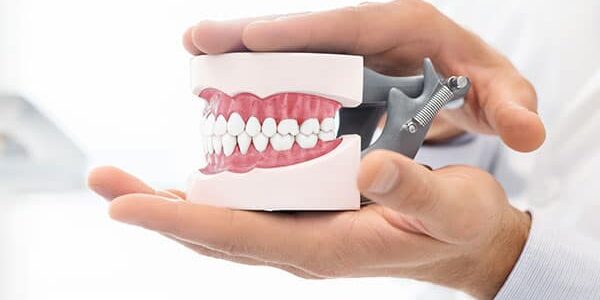
Oral medicine FAQ

Oral medicine is a specialized field of dentistry that focuses on diagnosing, preventing, and treating oral health conditions that affect the mouth, jaws, and surrounding structures. The practice bridges the gap between dentistry and medicine, addressing various issues such as oral ulcers, facial pain, and oral manifestations of systemic diseases. Please visit our dedicated service page for additional information about oral medicine, or contact our dental office.
Soft / hard tissue lesions of the mouth (cheek, lips, gums, tongue, floor of mouth)
- Oral cancer screening and evalaution
- Red and white spots / patches
- Lumps, bumps or swellings
- Ulcers, Canker sores or Blisters
- Mucocutaneous disorders of the mouth
- Soft tissue infections (e.g.: fungal, herpes, bacterial)
Dry mouth (Xerostomia) / salivary gland disorders
Mouth problems from medical conditions, and their treatment (e.g.: cancer)
Burning mouth
Taste disorders
Orofacial pain and Temporomandibular disorder (TMD)
- Problems with the temporomandibular joint (TMJ)
- Facial muscle pain
- Nerve related (neuropathic) pain
- Toothache or facial pain not related to the teeth
Services provided within our practice include:
- Soft and hard tissue biopsies
- Testing for salivary gland disorders (e.g.: Sjögren’s syndrome) to include salivary flow rate measurement, minor salivary gland biopsy
- Management with medications
- Oral appliance fabrication (for TMD or for snoring / obstructive sleep apnea)
- Counseling on pain management, behavioral modification and coping strategies
- Diagnostic or therapeutic injections for soft tissue lesions or facial pain conditions
- Coordination of care with other providers (dentists, doctors, physiotherapists).
Oral surgery FAQ
Focusing on the diagnosis and surgical treatment of various oral and maxillofacial conditions, oral surgery encompasses a wide range of procedures, from tooth extractions and dental implants to the treatment of oral cancer and the correction of facial deformities. Please visit our dedicated service page for additional information about oral surgery, or contact our dental office. We’re always ready to help.
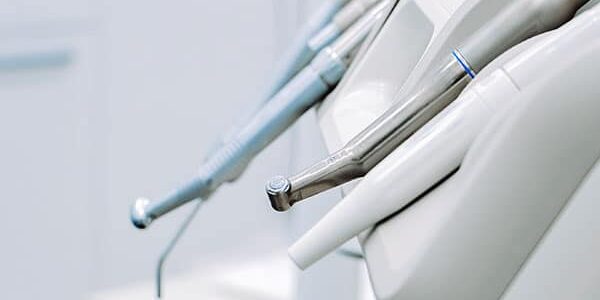
Oral surgery FAQ

Focusing on the diagnosis and surgical treatment of various oral and maxillofacial conditions, oral surgery encompasses a wide range of procedures, from tooth extractions and dental implants to the treatment of oral cancer and the correction of facial deformities. Please visit our dedicated service page for additional information about oral surgery, or contact our dental office. We’re always ready to help.
An OMS (Oral and Maxillofacial Surgeon) is a specialist that treats diseases associated with your teeth, mouth, face, and jaws. This specialist could help with tooth extractions (minor) to more significant procedures like reconstructive surgery. An OMS has the appropriate educational requirements including residency training. You can trust in our oral surgeons because they are certified to practice in Canada and have undergone all the necessary additional training.
You can call one of our offices to schedule an appointment directly with us; no referrals are required. Just phone us today and we’ll assist you in scheduling an appointment.
There are many services we offer at each of our Martindale Dental locations including the removal of wisdom teeth, dental implants, simple extractions, and so much more. Simply phone our office to see if we can help you with the treatment you require.
There are times that we can see a patient and treat them in the same day however some patients might require a consultation first and treatment on another scheduled day. Many times same-day services are available for minor, simple oral problems like needing a tooth extracted. More significant or complicated issues will require individual consultations and treatments.
It is not normal to experience pain that long after an extraction and you could have an infection, also known as dry socket. You need to phone us right away so we can schedule you in immediately to take care of the pain and potential infection.
The sutures we use are often resorbable which means they will start dissolving in two to three days so if they come out about this time, it’s perfectly fine. However, if you’re experiencing major or consistent bleeding you need to call us right away.
The area where a tooth has been extracted often closes up and heals within 6 weeks. The sockets won’t completely fill with bone for several months so you want to keep the sockets clean using the water syringe we provided when you had surgery.
It’s quite normal to have a numb lip or tongue, or even teeth, gums, etc. after you have had lower jaw surgery done. Irritation to the nerves is typically what causes the numbness and it often goes away on its own within a few days to a couple of weeks. In some cases it might take longer to go away. You don’t need to worry about muscle weakness but you should call us so that we can schedule an appointment to evaluate the problem and recommend the best solution.
The sites will generally close within 6 weeks. It will take several months for the sockets to actually fill with bone. If food gets trapped in the socket area, be sure to clean it with the water syringe given to you at the time of your surgery.
Bad breath will occur after surgery simply because food particles are getting into the socket. You want to keep this area clean at all times, especially after eating. Simply rinse your mouth with salt water (1/2 tsp of salt and warm water) a few times each day to prevent bad breath.
Orthodontics FAQ
Orthodontics is dedicated to diagnosing, preventing, and treating dental and facial irregularities. This field focuses on the alignment of teeth and jaws, utilizing various appliances such as braces, clear aligners, and retainers to correct various issues, including crowding, spacing, and bite problems. Please visit our dedicated service page for additional information about orthodontics, or contact our dental office. We’re always ready to help.
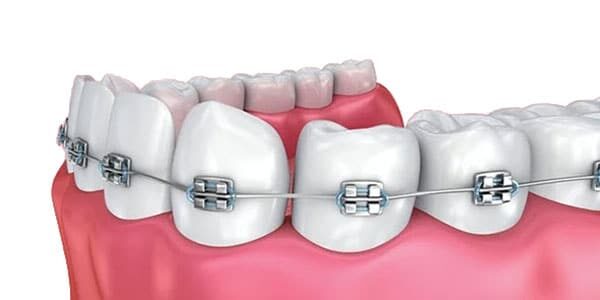
Orthodontics FAQ

Orthodontics is dedicated to diagnosing, preventing, and treating dental and facial irregularities. This field focuses on the alignment of teeth and jaws, utilizing various appliances such as braces, clear aligners, and retainers to correct various issues, including crowding, spacing, and bite problems. Please visit our dedicated service page for additional information about orthodontics, or contact our dental office. We’re always ready to help.
Many people ask this question and the answer is no. Orthodontics are not just for younger people and children; adults can have orthodontic treatment too.
Unfortunately, no. When permanent molars come in you begin to lose available space for the front teeth. Waiting to see if your teeth straighten on their own is highly unlikely to be successful. Our orthodontists will use special appliances when the teeth are still growing to help lessen the need for treatment later on during and after development.
This typically means ‘bad bite’ and can be genetic or caused by certain habits (tongue thrusting and sucking your thumb) in addition to unexpected accidents.
Braces come in many styles and our team will help you determine the best option for your specific needs. Your choices include:
– Clear Braces
– Gold Braces
– Lingual Braces
– Ceramic Braces
– Metal Braces
– Invisalign (clear braces)
The length of time you have to wear braces depends on your specific and individual case. Not everyone will wear them for the same length of time. You can expect, in general, to have them anywhere from 1.5 years to 2 years but this will vary by patient.
Having braces put on your teeth isn’t typically very painful, however you are likely to feel a little discomfort afterwards. In addition, you will also feel slight temporary discomfort after each adjustment visit as well. Regular OTC medication helps with alleviating the pain; Tylenol, Ibuprofen, etc.
Visiting your dentist on a regular basis is still crucially important when you have braces. Food particles easily get caught in the braces and your toothbrush won’t always be able to completely remove the particles. If not removed you risk having bacteria build and produce cavities, discolour your teeth and possible gum disease.
This will depend on each individual patient. The average time between adjustments is four to eight weeks.
This will also depend on each individual patient. While there are different factors that may require the removal of permanent teeth, this isn’t always a necessity. If your dental arches have a significant space deficiency then teeth may need to be extracted.
Jaw surgery is not always required but in cases where dental arches have a false relationship or there is a significant discrepancy in the size of the jaw, jaw surgery could possibly be required. There is only a small number of cases where this has been required. The majority of orthodontic treatments do not required or include jaw surgery.
Periodontics FAQ
Periodontics focuses on the prevention, diagnosis, and treatment of gum diseases and the maintenance of the supporting structures of the teeth. It also plays a critical role in addressing various gum conditions, from gingivitis to periodontitis, and performing procedures such as scaling, root planing, and dental implants.Please visit our dedicated service page for additional information about periodontics, or contact our dental office.
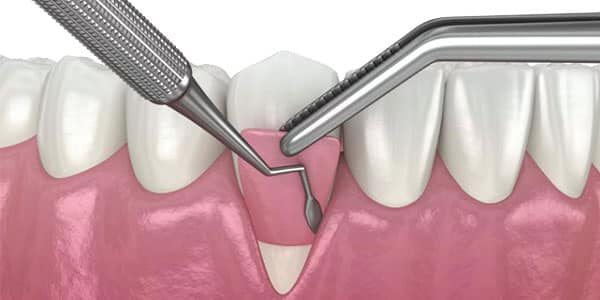
Periodontics FAQ

Periodontics focuses on the prevention, diagnosis, and treatment of gum diseases and the maintenance of the supporting structures of the teeth. It also plays a critical role in addressing various gum conditions, from gingivitis to periodontitis, and performing procedures such as scaling, root planing, and dental implants.Please visit our dedicated service page for additional information about periodontics, or contact our dental office.
Unfortunately, the answer is no. There is no cure for periodontal disease which is why we encourage methods to prevent the disease. Periodontitis is caused by bacteria in the mouth and the only way to keep it under control is through meticulous care at home, treatments recommended by your periodontist and regular visits. You can prevent periodontal disease with regular brushing (2 times a day), flossing daily and visiting your dentist regularly. In addition, a healthy diet can improve oral health in addition to not smoking.
If you have been diagnosed with periodontal disease it’s very critical that you see your periodontist regularly to avoid progression of the disease. Our periodontists undergo extensive training and are among the best in the area for diagnosing and treating periodontal disease.
You get the benefits of ensuring your disease doesn’t progress and a clean, healthy mouth. We help you restore your oral health so that you can enjoy eating those foods you have had to avoid in recent years. Just because you age doesn’t mean your oral health has to deteriorate as well.
If you need dental implants you can expect them to last a very long time. Of course, certain factors will affect the life duration of your implants such as metabolic bone disease, HIV, smoking, and even diabetes. If you have less than desirable oral hygiene or a pre-existing periodontal disease that hasn’t been treated this too will affect the lifetime of your implants.
Dental implants will help improve your appearance and boost your self-confidence, but they will also help you enjoy eating food without the pain of chewing.
Like with many surgeries, patients have a right to know how much pain they can expect to be in after surgery. Surprisingly, so long as you follow the instructions provided for post-operation and take your medication as prescribed you can expect to be back at work the next day if not two days later. Many of our patients have complimented how well they felt post-operation and even a recent study shows the pain associated with implants that comes post-operation is one of the lesser pains of all dentistry procedures.
Many patients do experience some discomfort and likely minor swelling which is completely normal. We advise taking your prescribed pain pills prior to the anesthesia wearing off to allow time for it to start working and avoid too much pain. If you want to lessen the discomfort and/or swelling we recommend placing an icepack on the outside of your mouth for 10 minutes at a time (10 minutes on your mouth and 10 minutes off, repeat). This is only effective for the first few hours post-operation. Your swelling might worsen within the next day or so but after 2-3 days it will begin subsiding.
Minor bleeding is quite normal for up to 24 hours after having periodontal surgery but if you’re noticing large clots you need to phone us right away. If they’re slightly bleeding but the blood mixes with your saliva then it may seem like they’re bleeding a lot. You can use a piece of gauze shaped into ‘U’ form to place over the bleeding. Applying gentle pressure to the bleeding site for up to 20 minutes should also help the bleeding subside. If you are still bleeding long after your surgery just call our Martindale Dental office and we’ll schedule a time to see you.
You should wait up to 24 hours or until our periodontist has advised before flossing and brushing like normal again. Some patients are prescribed Peridex to gently rinse their mouths on occasion but only after 24 hours have passed. Peridex will promote the healing process.
We advise not smoking for at least 24 hours prior to your surgery and for 48 hours after your surgery. We encourage you not to smoke at all for as long as you can handle once you’ve had your surgery.
In order to prevent more bleeding at the surgical site after your surgery avoid alcoholic beverages. In addition, if you’re taking prescribed medication as well avoid drinking altogether until you have finished your prescription.
For the first 24 hours you will want to choose soft foods and avoid spicy, hard, hot and cold foods. You can then resume your normal diet after 24 hours but do not chew where the surgical site is until it’s completely healed.
TMD FAQ
Temporomandibular Disorders (TMD), a complex and often misunderstood group of conditions that affect the temporomandibular joint (TMJ), jaw muscles, and surrounding structures. TMD can manifest in various ways, from jaw pain and clicking to headaches and difficulty opening or closing the mouth. Please visit our dedicated service page for additional information about TMD, or contact our dental office. We’re always ready to help.
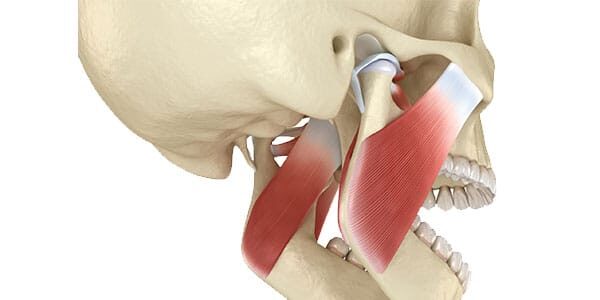
TMD FAQ

Temporomandibular Disorders (TMD), a complex and often misunderstood group of conditions that affect the temporomandibular joint (TMJ), jaw muscles, and surrounding structures. TMD can manifest in various ways, from jaw pain and clicking to headaches and difficulty opening or closing the mouth. Please visit our dedicated service page for additional information about TMD, or contact our dental office. We’re always ready to help.
TMD is a facial pain disorder that many people confuse with TMJ. TMJ is the temporomandibular joint, which consists of the two (left and right) that connect the jaw to the skull. Many people with TMD will experience headaches, jaw pain or a clicking type sound when opening and closing their jaws. Luckily, our team of professionals can help you treat this condition. The two basic types of TMD includes jaw joint generated pain and muscle generated pain. Both can produce long-term pain and should be addressed right away to be treated.
So what causes TMD? This disorder can develop for a variety of reasons but typically consists of a combination of several factors working together. People who grind or clench their teeth often are causing stress to their TM joint. An injury or disease may have damaged your jaw leaving you with TMD. You might experience pain or have problems opening your mouth, have headaches regularly, hear a clicking noise when you open your mouth, and you could possibly have a misaligned bite. Regardless of the problems you’re having we are here to help you get relief with proper treatment for your TMD.
- Waking up with stiff and/or sore jaw muscles
- Frequent neck pain or headaches
- Increased teeth clenching when stressed
- Grinding of the teeth
- Noise from the jaw when opening your mouth
- Past injury to the head, neck or jaws
- Pain or trouble opening your mouth
- Sensitive, broken, worn or loose teeth
- Teeth that do not touch when biting
f you have been diagnosed with TMD our expert team will determine the best approach for treatment. We take many factors into consideration and want patients to understand there is no ‘miracle’ fix to TMD. Self-management and factor control is necessary for treating TMD.
There are conservative management techniques that have proven to be an effective, safe way to treat most TMD cases. Relieving the pain of muscles or joints is the primary goal and often accomplished through medication as prescribed by your orthodontist. Certain jaw exercises can be very helpful as well as self-care treatment but we will discuss this further with each patient.
Some TMD patients find that using a splint or nightguard helps significantly. Especially for those who may grind their teeth at night unconsciously. However, there are different appliances that serve different purposes and your provider will be able to determine the one best suited for your specific needs
Invasive treatment is not typically required for TMD patients, even those who have severe and/or long-lasting pain or symptoms.
It all comes down to letting your provider examine your mouth and help you determine the best course of treatment based on your symptoms. Correcting the bite is not always the best solution and often times we can help you get relief in less invasive ways.
Martindale Dental provides both general and specialty dentistry under one roof. For more than 20 years, our dentists have been advocates for their patient’s oral health care needs.
Our dental offices are conveniently located throughout the GTA in Hamilton (Jackson Square), and St. Catharines, Ontario. We offer convenient appointments before or after work & on weekends.
Martindale Dental provides both general and specialty dentistry under one roof. For more than 20 years, our dentists have been advocates for their patient’s oral health care needs.
Our dental offices are conveniently located throughout the GTA in Hamilton (Jackson Square), and St. Catharines, Ontario. We offer convenient appointments before or after work & on weekends.
